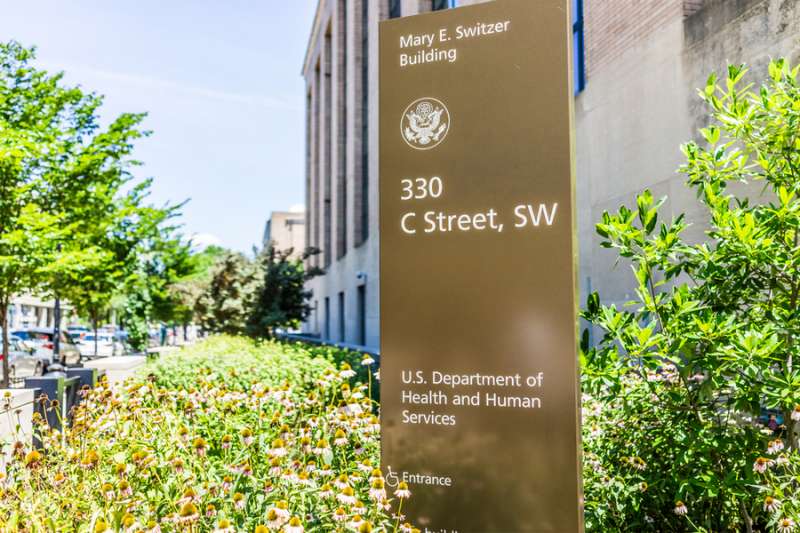The Departments of Health and Human Services, Treasury, and Labor released two updated rules concerning conscience protections for organizations and individuals in relation to the HHS contraception mandate.
Under the new rules, organizations and individuals objecting to the controversial mandate’s provisions on either religious or moral grounds will be exempt.
According to a press release from HHS, the new rules “provide an exemption from the contraceptive coverage mandate to entities and individuals that object to services covered by the mandate on the basis of sincerely held religious beliefs.”
“Thus,” the release said, “entities that have sincerely held religious beliefs against providing contraceptive services (or services which they consider to be abortifacients) would be exempt from the mandate and no longer be required to provide such coverage.”
The new rules also cover nonprofit organizations, small businesses, and individuals that have “non-religious moral convictions” opposed to the services covered by the mandate.
Mark Rienzi, president of the Becket Fund for Religious Liberty, offered praise for the new rules, saying they signaled the end of a “long, unnecessary culture war.”
Under the Affordable Care Act, employer-provided health insurance plans are required to cover certain “preventative services.” These were defined by guidance issued under the Obama Administration as including all contraception methods approved by the Food and Drug Administration, including abortifacient birth control pills, IUDs, and sterilization procedures.
This provision was not included in the original bill, but was announced in January 2012 by then-HHS Secretary Kathleen Sebelius.
Initially, there were no exemptions for those opposed to the distribution of contraceptives due to their deeply-held religious beliefs. Eventually, an exemption was made, but it was so narrow in scope it excluded religious orders such as the Little Sisters of the Poor.
The Little Sisters of the Poor, along with several other organizations, including EWTN, filed suit against HHS over the mandate.
Rienzi, whose organization represented the Little Sisters of the Poor, said that the change in administration policy meant attention could now turn to ongoing cases in the states.
“Today, at long last, the federal government finalized the rule providing a religious exemption from the HHS Mandate to the Little Sisters and other religious non-profits.”
“All that is left is for state governments to admit that there are many ways to deliver these services without nuns, and the Little Sisters can return to serving the elderly poor in peace.”
The Little Sisters of the Poor are currently being sued by the state attorney general’s office in Pennsylvania and California.
In May of 2017, Trump issued an executive order asking that conscience-based objections to the HHS Contraceptive Mandate be addressed.
In October 2017, the Trump administration announced additional exemptions to protect those with religious objections to the distribution of contraception. These have been the subject of ongoing legal challenges.
Judge Wendy Beetlestone of the Federal District Court in Philadelphia issued a preliminary injunction against the Trump administration's initial rules Dec. 15, 2017, saying Pennsylvania could suffer “serious and irreparable harm” from the rules because a lack of cost-effective contraception would mean “individual choices which will result in an increase in unintended pregnancies” burdening the state.
Shortly after Beetlestone's ruling, Judge Haywood Gilliam Jr. of the Federal District Court in Oakland also blocked the Trump administration's rules, saying they would “transform contraceptive coverage from a legal entitlement to an essentially gratuitous benefit wholly subject to their employer’s discretion.”
Both of these cases were appealed by the administration and remain pending.
In April, 2018, District Court Judge David Russell issued a permanent injunction and declaratory relief against the mandate for members of the Catholic Benefits Association.
Russell also ruled that the mandate violates the Religious Freedom Restoration Act by attempting to force employers to provide contraception and sterilization in violation of their sincerely held religious beliefs.
The updated exemptions, released Wednesday, will not include publicly-traded businesses. Employers that still wish to cover contraceptives as part of their insurance plan remain free to do so.
In addition to the exemption, employers and other affected bodies can still choose to arrange for a third-party accommodation, which would provide contraceptive coverage to its employees and their dependents either through independent action by their insurer or insurance administrator.
A press release for HHS also confirmed that government programs providing contraception either for free or at a lower cost to low-income women will not be impacted by these new rules.
In addition to these two rules, the Centers for Medicare and Medicaid Services issued a proposed rule concerning eligibility for premium subsidies through the Affordable Care Act Exchange.
This rule, titled “Patient Protection and Affordable Care Act (PPACA): Exchange Program Integrity,” looks to ensure that patients are eligible for these subsidies. It also proposes that issuers bill patients abortion services separately from other medical services.

